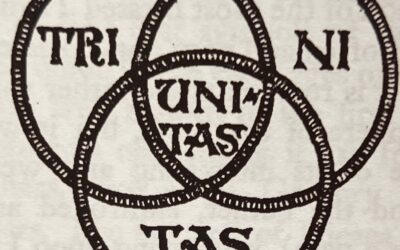Christian Smith, the principal investigator of the National Study of Youth and Religion, is the author, with Melina Lundquist Dentonof, of Soul Searching: The Religious and Spiritual Lives of American Teenagers. They use the term “moralistic therapeutic deism” to describe the shared spiritual beliefs among youths in America. They propose that those beliefs are:
- A God exists who created and ordered the world and watches over human life on earth.
- God wants people to be good, nice, and fair to each other, as taught in the Bible and by most world religions.
- The central goal of life is to be happy and to feel good about oneself.
- God does not need to be particularly involved in one’s life except when God is required to resolve a problem.
- Good people go to heaven when they die.
I am pleased to read that young people recognize God’s existence and have formed some knowledge of God. This list gives evidence to the Church’s insistence that we are religious beings, that the ‘message of creation’ and conscience lead us to recognize God’s existence, that human reason pondering creation leads us to the knowledge of God, and that creaturely perfections give us names for God.
That list of beliefs also shines a bright light on what’s missing from them: God’s Revelation. We should all admire what young people have figured out on their own. We should help their beliefs reach full maturity by passing along that knowledge of God that can only come from God. Here is what that list would look like with the addition of some of God’s Revelation:
A God exists who created and ordered the world and watches over human life on earth.
“Divine providence consists of the dispositions by which God guides all his creatures with wisdom and love to their ultimate end. (CCC 321)”
God wants people to be good, nice, and fair to each other, as taught in the Bible and by most world religions.
“Be perfect, as your heavenly Father is perfect. (Mt 5:48)” God knows that we can’t do that without his help, which is his grace, and which comes to us through the sacraments.
The central goal of life is to be happy and to feel good about oneself.
“We all want to live happily; in the whole human race, there is no one who does not assent to this proposition, even before it is fully articulated. (St. Augustine)” We desire the happiness of eternal life that can be fulfilled by God alone. To attain our desire, he endows us with reason, free will, moral conscience, passions, virtue, and gives us law and grace, all by which we avoid sin, seek his mercy for sin, and attain the perfection of charity that leads to heaven.
God does not need to be particularly involved in one’s life except when God is required to resolve a problem.
The Sermon on the Mount expresses the beautiful truth that God takes care of us always. In addition to Divine Providence, we actively cooperate with God’s providence to guide ourselves to the happiness that is our ultimate end.
Good people go to heaven when they die.
The four last things facing each of us are death and judgment, heaven or hell. There are also in purgatory those who will go to heaven after a state of purification. These people need our prayers.







0 Comments